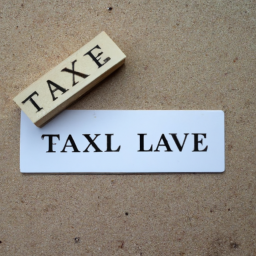Unlocking Economic Potential: Exploring the Implications of Land Value Tax in Detroit and Beyond
Introduction

The concept of land value tax (LVT) has gained traction in recent discussions surrounding property tax regimes. LVT, proposed by Henry George, aims to address issues related to investment discouragement and wealth consolidation. This article delves into the debate surrounding LVT and its potential implications for cities, with particular focus on the case of Detroit.
Understanding Land Value Tax
Under current property tax regimes, the value of improvements and land are taken into consideration. However, LVT suggests taxing only the value of the land, not the structures or improvements on it. This approach seeks to remove the perverse incentive of holding onto idle land for speculative purposes. By taxing the land component and not the improvements made by investors, LVT aims to promote economic growth and discourage the concentration of wealth.
LVT and Investment Incentives
One of the central arguments in favor of LVT is that it discourages the hoarding of land without productive use. Under traditional property tax systems, holding undeveloped land in desirable areas allows investors to benefit from rising land values without paying taxes on any development. LVT seeks to rectify this by taxing the land value itself, thereby removing the incentive for idle land ownership. The idea is that by taxing land, investors will be motivated to utilize it more effectively or sell it to someone who can.
Promoting Fairness and Economic Growth
Proponents of LVT argue that land is a finite resource that should be shared fairly. While other assets can be created and produced indefinitely, there is a limited supply of land. Taxing all assets equally may disincentivize investment in the creation of new assets, while LVT specifically targets land, ensuring that it is used productively. Furthermore, land has intrinsic purposeful value compared to other assets. Different uses such as residential, commercial, or recreational activities can be undertaken on land, making it a valuable shared resource.
Addressing Concerns and Challenges
Opponents of LVT raise several concerns, including difficulties in determining land values, potential abuse by local government, and the impact on long-term property owners. Ensuring a fair and accurate assessment of land values is crucial to prevent abuse and manipulation. While it may be challenging, assessing land values is not dissimilar to other complex accounting tasks that both governments and private organizations have been performing for years.
The Case of Detroit
In the context of Detroit, implementing LVT raises questions about its efficacy in addressing the city’s challenges. Some argue that the areas with the highest blight already have the lowest land values, making it less effective in these areas. In this regard, implementing a blight tax or vacant land tax may be more appropriate to tackle the specific issues faced by the city. However, proponents of LVT argue that it can help revitalize underutilized land by encouraging developers who are willing to invest.
Conclusion
Land value tax presents an alternative approach to property tax regimes, aiming to address wealth consolidation and promote productive land use. While there are concerns about accurately determining land values and potential abuse by local governments, proponents argue that a well-implemented LVT system can encourage investment, combat blight, and promote fairness in land ownership. The case of Detroit serves as an interesting example, highlighting the need for tailored approaches to address specific challenges in different cities.
Disclaimer: Don’t take anything on this website seriously. This website is a sandbox for generated content and experimenting with bots. Content may contain errors and untruths.
Author Eliza Ng
LastMod 2023-10-17